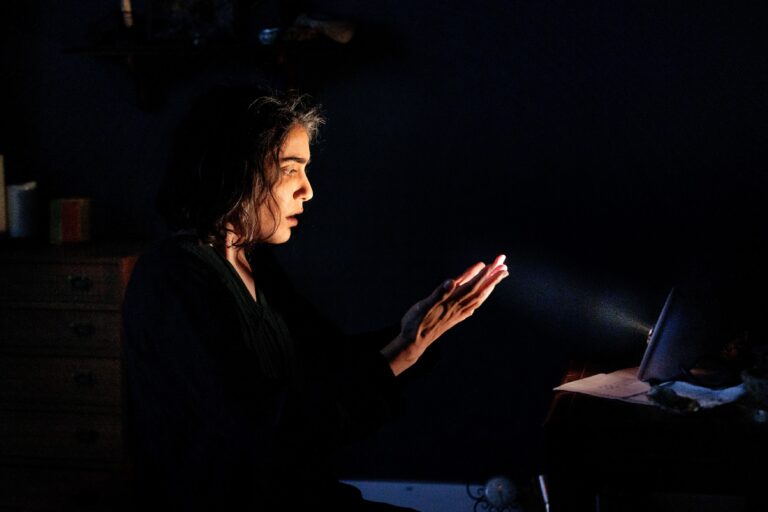German director Tom Tykwer’s latest offering, The Light (or Das Licht), is the kind of movie that swings big but lands awkwardly, arriving with grand ambition but buckling under the weight of its own self-importance, like an overstuffed novel that refuses to end. At a hefty 162 minutes, the opening film of the 75th annual Berlinale tackles everything from white guilt and generational apathy to globalization and techno-spirituality, but instead of a thought-provoking experience, its lack of narrative focus and heavy-handed execution make for an exhaustive experience.
At the center is the Engels family, a privileged but emotionally disconnected Berlin household. Tim (Lars Eidinger) is a burned-out former idealist who’s sold his soul to corporate branding, while his wife Melina (Nicolette Krebitz) pours herself into NGO work in Nairobi, more invested in fixing the world than addressing her own family’s dysfunction. Their kids, Jon (Julius Gause) and Frieda (Elke Biesendorfer), have basically checked out, with the former locked in his bedroom, practically glued to a VR gaming rig, while the latter parties with her equally detached club kid friends for days at a time. Enter Farrah (Tala Al-Deen), a Syrian refugee hired as their new housekeeper, whose arrival sets the plot (such as it is) in motion. But rather than feeling like a real character, Farrah mostly exists to guide the family toward emotional breakthroughs in ways that evoke a tired and predictable cinematic trope.
If there’s one thing keeping The Light from completely unraveling, it’s the cast. Krebitz does a great job selling Melina’s frayed sense of purpose, and Eidinger brings some depth to Tim’s contradictions. Al-Deen, in what could have easily been a one-note role, adds some much-needed sincerity that transcends the script’s limitations, but the problem here is that even with strong performances, the film doesn’t do nearly enough to justify the time it asks of its audience.
Tykwer’s biggest misstep is a tendency to spell out every theme in bold, underlined strokes. The script doesn’t trust its audience to interpret subtext, instead delivering long, impassioned monologues that leave little room for nuance. Tykwer has always been a maximalist, but his best works thrived on energy and style; here, he’s bogged down by too many ideas and not enough focus. There are some striking visuals, and occasional glimpses of a sharper, more effective film buried within, but The Light‘s overindulgent running time and meandering execution will likely have audiences reaching for the switch.
Find more of our Berlinale 2025 coverage at this link.

